What’s in a name?
Something I’ve always liked about Strategic Command is the unique names given to each campaign. The first SC game I ever played was Patton Drives East, and while at age 9 I didn’t have much idea on how to actually play the game, the name of the main campaign – Storm of Steel – was something I always thought was pretty cool. Certainly it stuck with me, because I remembered it when countless other games I played around that time are now long forgotten.
In furthering this tradition, I spend a lot of time deciding on the names I will give each campaign. Sometimes I take them from famous quotes: ‘Make Georgia Howl’ was taken from General Sherman for the 1864 start date in American Civil War, while ‘Remember the Maine’ was the most prominent war cry in the lead-up to the Spanish-American War. Other times I have used the titles of books: ‘August Storm’ and ‘Manassas to Appomattox’ were key sources I used when researching the conflicts they represent, while ‘The Conquest of Mexico’ was a book actually carried into battle by American soldiers during the Mexican War (and a story I found so interesting that I integrated it into the campaign itself). Not all the names I have used have been taken directly from history: while ‘The Balkan League’ was chosen as the name of the alliance that went to war with the Ottoman Empire in 1912, ‘The Broken League’ is derived from that name and the shattering of alliances that brought about the Second Balkan War – history has never given us a collective name for those nations who fought Bulgaria in 1913.
So what about Concert of Europe? The term itself was often used throughout the 19th century to describe the prevailing diplomatic system of the day, whereby the great powers sought to keep their disputes localised. The five conflicts represented in this expansion are, along with the previously-released Franco-Prussian War campaign, among the largest European conflicts between the defeat of Napoleon I and the outbreak of the Balkan Wars, yet each was also defined by the efforts of the warring powers to keep neutral powers out of the fight.
This era was also the heyday of Romantic poetry, perhaps best exemplified by Alfred Tennyson’s “Charge of the Light Brigade”. With the conflicts covered by Concert of Europe including several wars of liberation and of unification, I thought it would be fitting to take the name for each campaign from a poem of the period. These are the stories behind each:
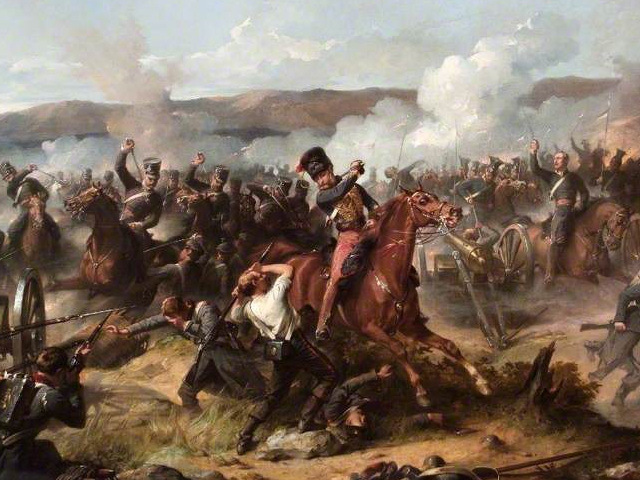
1854 Before the Unfallen Fort
Crimea is a story that has been told by many poems. Tennyson, as mentioned, would have been an obvious choice. Another name I considered was “Deeds of Might” from J.S.B. Monsell’s “What Will They Say in England”, a song about the battle of the Alma. I also shortlisted various lines from the collection ‘Sonnets on the War’ by Alexander Smith, and even considered quoting Shakespeare’s Henry V, as Balaklava, just like Agincourt, fell on St Crispin’s Day (a coincidence noticed by the happy few of the 93rd Highlanders). But it was from the second stanza of John Henry Hopkins Jr’s ‘Second Year of the Crimean War: The Crescent and the Cross’ that I ultimately found this campaign’s name.
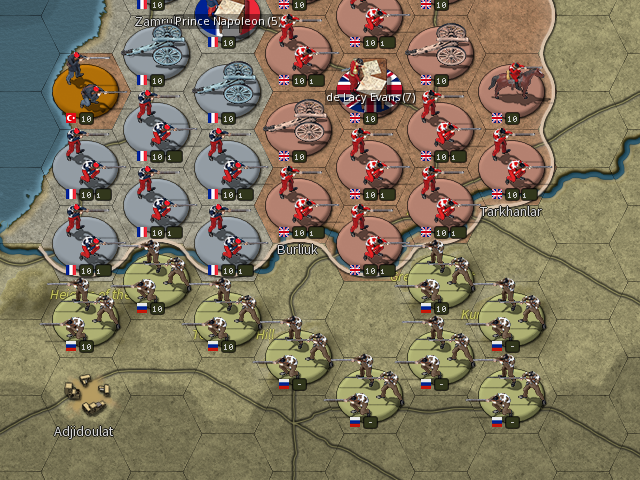
Hopkins’ poem is one that laments the war between Christian powers, reflecting on the strange irony that the conflict began as a holy war against Islam by the Tsar but by 1854 was being fought primarily against the British and French. Hopkins also that predicts that the war will be the Ottomans’ undoing as they become increasingly indebted to Britain and France, as indeed the Western powers attempted to wring concessions from the Sultan after the war.
Yet what struck me most about Hopkins’ poem was the air of tragedy that pervades its earlier stanzas. Even by the usual standards of war, Crimea is remembered as a particularly tragic conflict infamously mismanaged by the high commands of both sides. The tragedies I think Hopkins most compellingly describes are those of three leaders:
“Three chiefs of war, yet none among them all
Fell by the sword, as soldiers love to fall”
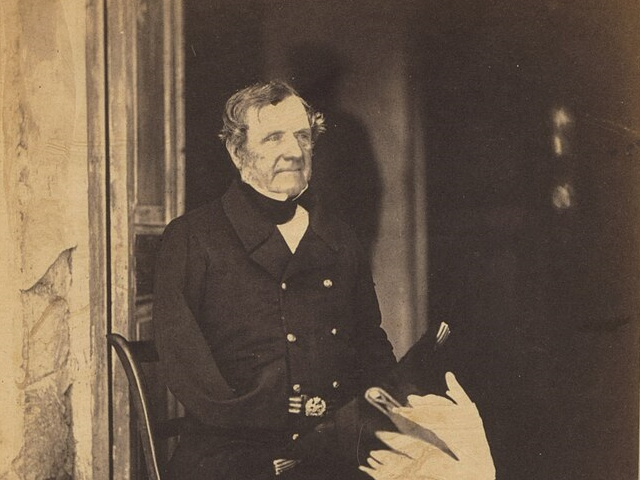
The first of these, the “One on the sea”, was the French Marshal Saint-Arnaud, who died of stomach cancer nine days after the Battle of the Alma. The second, Tsar Nicholas in March 1855, “Reclined within his curtained palaces” before dying of pneumonia. The third, and the one who died “before the unfallen fort”, was Lord Raglan – a figure who I find best represents the tragedies of Crimea within a single person: it was his failure to order an assault on Sevastopol immediately after the Alma (at which point the city’s defences were not yet prepared), and a litany of poor decisions thereafter, that allowed the siege to grow so costly and drag on for so long. Yet Raglan has also been held responsible by history for failures that were not his own, whether they be the dreadful state of British supply services, the thousands of deaths caused by disease, or the hurricane that destroyed Allied supplies and ships at the beginning of the harsh Crimean winter.
That hurricane hit Crimea on the 14th of November, 1854, a day that marks the end of the playable campaign. By that day, the Allies had triumphed on Alma’s heights, the thin red line had held Balaklava, and the great soldier’s battle had been won at Inkerman. Yet the Allies stood freezing before the unfallen fort of Sevastopol, with victory looking more distant than ever.
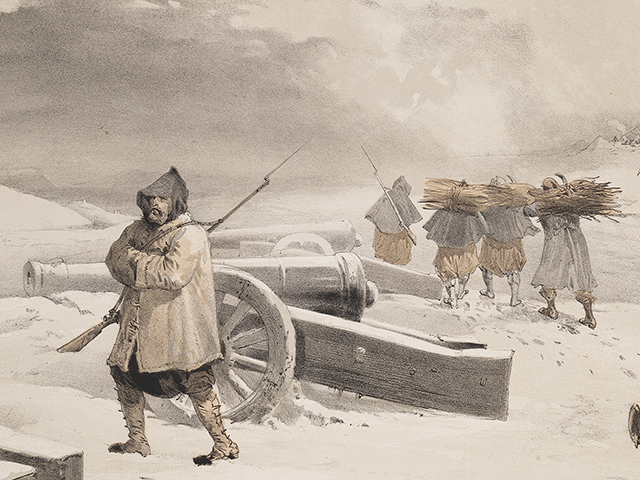
1859 Listen Awhile Ye Nations
Before I had settled upon the idea of taking each campaign’s name from a poem, my original idea for this campaign was to call it “An Eagle’s Heir”: the titular heir being Napoleon III, and the eagle his famous uncle. The campaign of 1859 shares many parallels with that of 1796: not only were both fought in northern Italy by a member of the Bonaparte family against the Austrian Empire, with the victories being leveraged to form a new north Italian state, but the battle of Solferino would take place merely a few kilometres from the field of Castiglione.
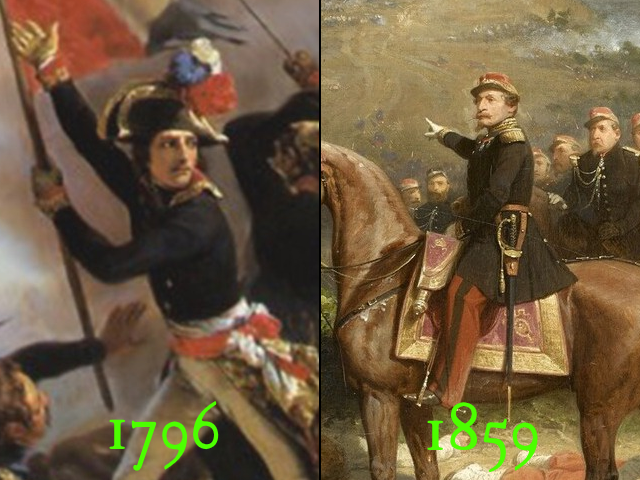
The idea to take the names from poetry came after I read the excellent three-volume biography of Garibaldi by George Trevelyan, who opens each of his chapters with a poem or quotation. The first one he chose is from “Addressed to the Same” by John Keats. Though it was written in 1817, it foretells an “age to come” where “great spirits” – the common people – “will give the world another heart” and achieve a political awakening. Trevelyan uses it to echo the great political awakening that Keats would never live to see, that of 1848. But in Italy, it was not 1848 that represented “the age to come” that Keats wrote of – Radetzky’s crushing of the revolutions ensured that the peninsula then remained in the grip of the Habsburgs and Bourbons. Instead it was 1859, when the French and Italians combined once again to drive the Austrians from Italy.
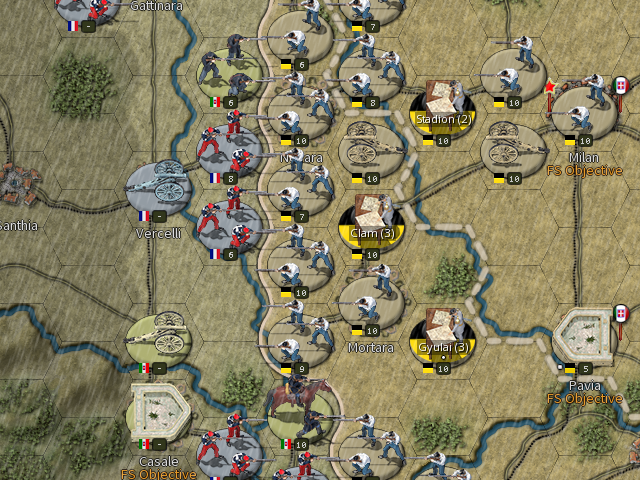
The poem’s full final line is “listen awhile ye nations, and be dumb”, and it can be argued that no-one was left more dumbstruck by the events that followed 1859 than Napoleon III himself. His own war aims were to secure Nice and Savoy for France by trading them from Italy for conquered Lombardy, giving him both the coveted territory and an ally strong enough to support him in a possible future war against Austria but weak enough to remain dominated by French influence. Yet before the war was even over, popular uprisings had given Victor Emmanuel central as well as northern Italy, and thus the strength to look towards Great Britain and not France for support in the Risorgimento’s next chapter; within two years it would be Italian bayonets pointing at the French garrison in Rome.












